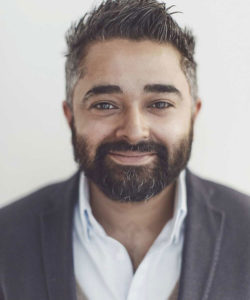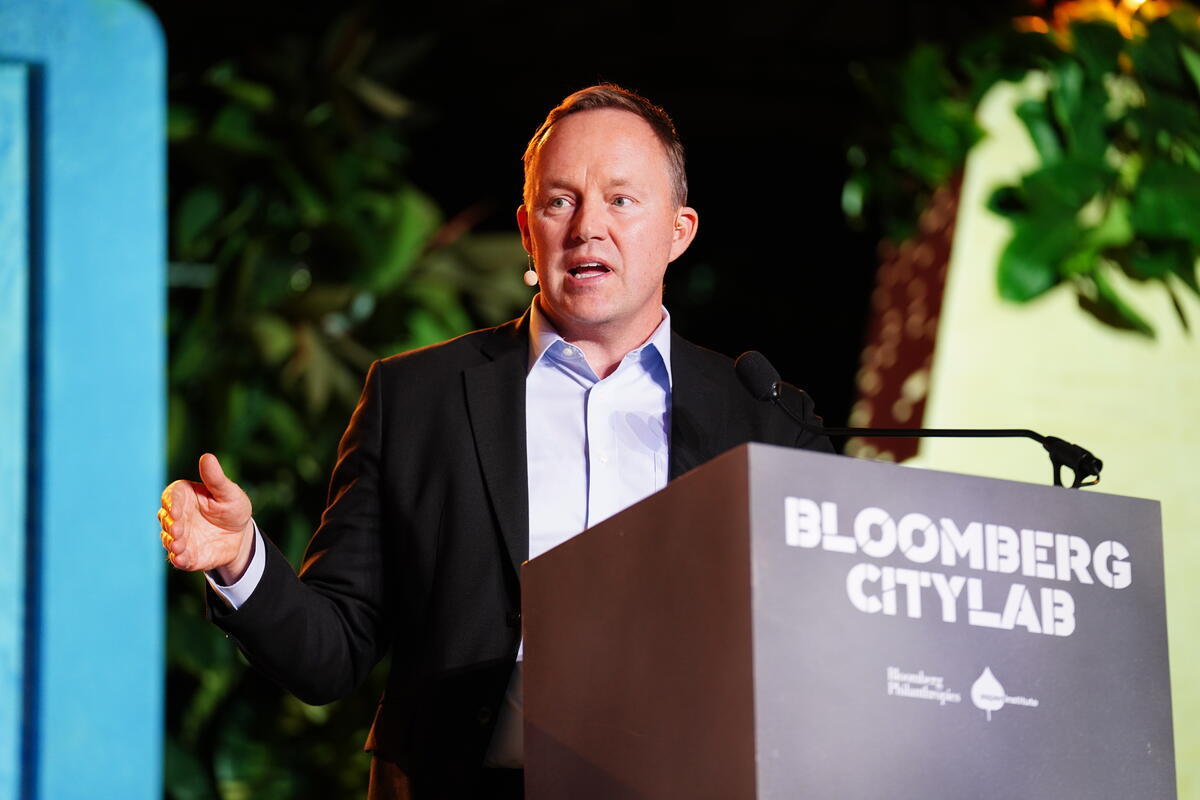
Photo: Mike Clegg | Dreamstime.com
Data charter paves the way for AI in Camden
03 May 2023
by Sarah Wray
As artificial intelligence (AI) advances, local governments have an important role to play, says Tariq Khan, Chief Digital and Information Officer for the London Borough of Camden.

Alongside his day job, Khan is also studying for a Master’s in AI at the University of Cambridge.
“I really want people to understand that there’s this big tidal wave of AI coming and it’s going to be there whether you like it or not,” Khan told Cities Today. “There isn’t going to be an approval process for AI. It’s just going to seep in without you even knowing it, and people will be using it.”
He believes that local governments can use AI to improve services and demonstrate leadership on ethics.
“Local government holds a really important place in this. From a national point of view, it’s very difficult to engage with your communities around some of these things. However, there are much greater levels of trust and collaboration with communities at a local government level.”
In January 2022, Camden adopted a Data Charter to guide how the council collects, processes and shares data ethically. It includes commitments to transparency, oversight and security. Data is to be used for the public good and towards clear outcomes, with individuals’ rights and privacy protected.
Social contract
Some residents were asking questions and raising concerns about data. “But equally, we wanted to be quite proactive,” Khan comments, adding that the charter has gained even more relevance recently with the launch of tools such as ChatGPT.
The “social contract” was developed in collaboration with residents, community groups and partner organisations. In response to it, the council also committed to publish a register of data-sharing agreements and details of privacy impact assessments. A residents’ panel will be held annually to make sure projects using data are meeting the principles of the charter.
Khan believes that people typically have higher expectations of government organisations than the private sector when it comes to data ethics, particularly local government.
“Our residents see us as the guardians of their data so we need to build trust. It was an initiative that had started even before I came on board, but it gained extra resonance as I started to look at how we start delivering innovation, and obviously AI is going to be a big part of that as well,” Khan says.
The borough has a couple of AI trials in place. One, which is at the early stages, uses “predictive modelling to allocate council resources in the right way.”
Khan explains: “Post-pandemic, there has been a huge amount of debt that’s been amassed with lots of different local councils – way more debt than our resources would be able to handle at any one time.
“We’re flipping it around and saying: how can we make sure that the limited resources we have are helping people as much as possible.”
The initiative uses data to analyse factors such as housing vulnerability and households with children “to make sure that we can focus our resources in a much more strategic way to look at early intervention and prevention.”
Khan stresses the data will not be used in any kind of punitive way and the process is not automated.
“We’re using this to give our frontline staff a much richer source of information in order to make better quality decisions,” he says.
Design thinking
The borough also plans to include residents in design and feedback processes for the programme.
Alongside transparency around the council’s broad approach to data, AI and ethics, Khan says “there needs to be a more granular conversation with our community, specifically around projects as well.”
With this in mind, Camden is investing in design thinking and user research capabilities.
“We’ve learned that there is a genuine appetite to learn more about this stuff from a cross-section of the community,” he comments.
“One of the really interesting things is that there’s a general overriding narrative and fear around things like AI, about ‘the robot overlords taking over’. However, once we get into more granular conversations, principles are explained and the less salacious narrative is grounded in a bit of reality in terms of what we are actually doing and where we’re trying to go with that, the majority of respondents actually are very supportive and understand that it’s a very powerful tool that can help them in many positive ways.”
People
Khan notes that it’s not always the technology that worries residents, but also who is using it. In addition, some question whether a council would have adequate expertise in-house.
“They’d never normally be exposed to a data engineer in the borough of Camden,” says Khan. “When they get to meet these people, they understand that actually, there is a level of skill, aptitude and capability that we have. Camden is really building that up as well. We are looking to be quite ambitious and forward-thinking in terms of what we’re doing there.”
Khan came from a private sector background, previously working for beauty conglomerate Coty where he built tools such as an augmented reality AI make-up advisor. The council has recently hired a new Chief Data Officer, which was one of the charter commitments it made.
The team also collaborates with technology organisations that have offices locally, including Google, Meta, the Alan Turing Institute, and UCL.
Khan took voluntary redundancy from his previous job in 2020 when offices moved to the Netherlands. He had not envisaged taking a role in local government but when he was approached about the position in Camden, he was impressed by the council’s commitment to tackling inequality and delivering social value.
“It felt like a really unique opportunity where the stars aligned,” he says. “And I haven’t regretted it at all. It’s been brilliant and they’ve let me get on with it and wanted me to push the envelope. What I’m doing is making a lot of quite ambitious plans, but I’m also making sure that we have the foundations in place to develop these and make them sustainable.”
With his professional background and the academic knowledge he is also gaining, Khan is keen to collaborate with other cities around data, AI and ethics.
“It’s a real opportunity to look at how you start setting up some of those transparent frameworks and the actual nuts and bolts of us practically starting to become more comfortable with working with AI.”






